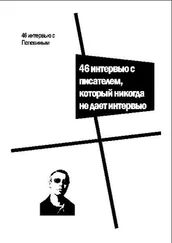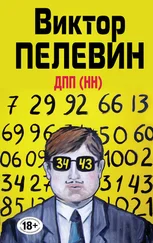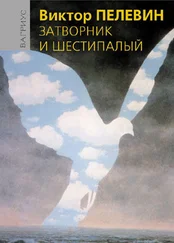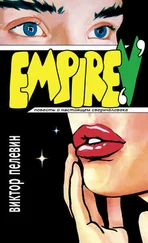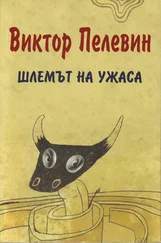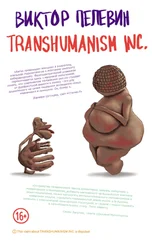Виктор Пелевин - Buddha's Little Finger
Здесь есть возможность читать онлайн «Виктор Пелевин - Buddha's Little Finger» весь текст электронной книги совершенно бесплатно (целиком полную версию без сокращений). В некоторых случаях можно слушать аудио, скачать через торрент в формате fb2 и присутствует краткое содержание. Жанр: Современная проза, на английском языке. Описание произведения, (предисловие) а так же отзывы посетителей доступны на портале библиотеки ЛибКат.
- Название:Buddha's Little Finger
- Автор:
- Жанр:
- Год:неизвестен
- ISBN:нет данных
- Рейтинг книги:5 / 5. Голосов: 1
-
Избранное:Добавить в избранное
- Отзывы:
-
Ваша оценка:
- 100
- 1
- 2
- 3
- 4
- 5
Buddha's Little Finger: краткое содержание, описание и аннотация
Предлагаем к чтению аннотацию, описание, краткое содержание или предисловие (зависит от того, что написал сам автор книги «Buddha's Little Finger»). Если вы не нашли необходимую информацию о книге — напишите в комментариях, мы постараемся отыскать её.
Buddha's Little Finger — читать онлайн бесплатно полную книгу (весь текст) целиком
Ниже представлен текст книги, разбитый по страницам. Система сохранения места последней прочитанной страницы, позволяет с удобством читать онлайн бесплатно книгу «Buddha's Little Finger», без необходимости каждый раз заново искать на чём Вы остановились. Поставьте закладку, и сможете в любой момент перейти на страницу, на которой закончили чтение.
Интервал:
Закладка:
‘Voyd!’ someone yelled once again behind the door. ‘Are you in there?’
‘Merde,’ I muttered, getting up from the bed and casting a crazed glance around my room. Outside the window the twilight was thickening. ‘Damn you to hell! What do you want?’
‘Can I come in?’
‘Come in.’
The door swung open, revealing a blond-haired, bow-legged hulk of an individual standing in the doorway. In theory he was my orderly, but after several weeks of the demoralizing in flu ence of the Reds, it was no longer quite clear just exactly what he had on his mind, and so now every evening, just to be on the safe side, I pulled off my own boots.
‘What, sleeping, was you?’ he asked, looking round the room. ‘Woke you up, did I? Sorry. You give us a real surprise today. Here’s a present as the men wants you to have.’
Some object wrapped in newspaper flopped down on to the bed in front of me; it had a strangely familiar smell. I unwrapped the bundle. Inside there was a bagel, one of those that were sold in the bakery on the main square, except that it was black, and it smelt of the coal-tar dubbin which the soldiers used for blacking their boots.
‘Don’t you like it, then?’ he asked.
1 looked up at him, and he immediately took a step backwards; before I could find the butt of my Browning in my pocket, he had disappeared from the doorway, and the three bullets which I fired into the empty rectangle ricocheted off the stone wall of the corridor like the song of angels.
‘All. Women. Suck.’ I said in a loud voice, and collapsed back on to the bed.
For a long time no one disturbed me. Outside the window I could hear constant drunken laughter; several shots were fired and then apparently a long, feebly fought fight broke out. To judge from the sounds that reached my ears, the concert had developed into an evening of total outrage, and it was very doubtful whether anybody at all was capable of controlling this tempest of the people’s rage, as the St Petersburg liberals had liked to call it. Then I heard quiet steps in the corridor. I felt a brief, fleeting hope - after all, I thought, there are such things as prophetic dreams - but it was so weak, that when I saw the broad-shouldered figure of Kotovsky in the doorway, I was not really disappointed. It even seemed rather funny to me that he should have come back to continue haggling over the trotters and the cocaine.
Kotovsky was wearing a brown two-piece suit; perched on his head was a dandified hat with a wide brim, and he had a leather portmanteau in each hand. He set them down on the floor and raised two fingers to his forehead.
‘Good evening, Pyotr,’ he said. ‘I just wanted to say goodbye.’
‘Are you leaving?’ I asked.
‘Yes. And I have no idea why you are staying,’ said Kotovsky. ‘Tomorrow or the next day these weavers will torch the entire place. I simply cannot understand what Chapaev is hoping for.’
‘He was intending to resolve that problem today.’
Kotovsky shrugged.
‘You know,’ he said, ‘problems can be resolved in various ways: you can simply drink yourself into a fog, and then for a while they will disappear. But I prefer to deal with them, to sort them out - at least until they begin to sort me out. The train leaves at eight o’clock this evening. It is still not too late. Five days, and we are in Paris.’
‘I am staying.’
Kotovsky looked at me carefully.
‘You do realize that you are mad?’ he asked.
‘Of course.’
‘It will all end with the three of you being arrested and that Furmanov in supreme command.’
That does not frighten me,’ I said.
‘You mean you are not afraid of arrest? Of course, all of us in the Russian intelligentsia do retain a certain secret freedom a la Pushkine, even in the madhouse, and it is possible…’
I laughed. ‘Kotovsky, you have a quite remarkable talent for detecting the rhythm of my own thought. I was actually pondering on that very theme only today, and I can tell you what the secret freedom of the Russian intellectual really consists of.’
‘If it will not take too long, I should be most obliged to you.’ he replied.
‘A year ago, I think it was, there was a most interesting event in St Petersburg. Several social democrats arrived from England - of course, they were appalled by what they found - and we had a meeting with them on Basseinaya Street, organized through the Union of Poets. Blok was there, and he spent the whole evening telling them about this secret freedom which, as he said, we all laud, following Pushkin. That was the last time I saw him, he was dressed all in black and quite inexpressibly morose. Then he left and the Englishmen, who naturally had not understood a thing, began asking us exactly what this secret freedom was; nobody could give them a proper answer, until a Romanian who happened for some reason to be travelling with the Englishmen said that he understood what was meant.’
‘I see.’ said Kotovsky, and he glanced at his watch.
‘No need for concern, this will not take long. He said that the Romanian language has a similar idiom - haz baragaz, or something of the kind - I forget the exact pronunciation, but the words literally mean «underground laughter». Apparently, during the Middle Ages Romania was frequently invaded by all sorts of nomadic tribes, and so the peasants constructed immense dugouts, entire underground houses, into which they drove their livestock the moment a cloud of dust appeared on the horizon. They themselves hid in these places as well, and since the dugouts were quite excellently camouflaged, the nomads could never find a thing. Naturally, when they were underground the peasants were very quiet, but just occasionally, when they were quite overcome by joy at their own cunning in deceiving everyone, they would cover their mouths with their hands and laugh very, very quietly. There is your secret freedom, the Romanian said, it is when you are sitting wedged in among a herd of foul-smelling goats and sheep and you point up at the roof with your finger and giggle very, very quietly. You know, Kotovsky, it was such a very apt description of the situation, that from that evening onwards I ceased being a member of the Russian intelligentsia. Underground giggling is not for me. Freedom cannot be secret.’
‘Interesting,’ said Kotovsky. ‘Interesting. But I am afraid it is time for me to be going.’
‘Let me see you to the gate.’ I said, rising to my feet. ‘There is the very devil of a commotion out there in the yard.’
‘As I was saying.’
I put the Browning into my pocket, picked up one of Kotovsky’s portmanteaus and was on the point of following him along the corridor when I was suddenly struck by a strange presentiment that I was seeing my room for the very last time. I halted in the doorway and looked around it carefully; two light armchairs, a bed, a small table with copies of Isis for 1915. My God, I thought, if things really are that bad, what does it matter that I shall never come back here? What does it matter that I do not know where I am going? How many places have I already left behind for ever?
‘Have you forgotten something?’ asked Kotovsky.
‘No, it’s nothing,’ I replied.
The sight that greeted us when we emerged on to the porch of the manor-house reminded me in some indefinable manner of Briullov’s painting The Last Day of Pompeii. There were not actually any collapsing columns or clouds of smoke against a black sky, just two large bonfires burning in the darkness and blind-drunk weavers wandering everywhere. But the way in which they slapped one another on the shoulder, the way they stopped to relieve themselves in public or to raise a bottle to their lips, the way some half-naked, drunken women were laughing as they staggered around the yard, together with the menacing red glow of the fires that illuminated the entire Bacchanalian scene - all served to induce a sense of impending menace, final and implacable.
Читать дальшеИнтервал:
Закладка:
Похожие книги на «Buddha's Little Finger»
Представляем Вашему вниманию похожие книги на «Buddha's Little Finger» списком для выбора. Мы отобрали схожую по названию и смыслу литературу в надежде предоставить читателям больше вариантов отыскать новые, интересные, ещё непрочитанные произведения.
Обсуждение, отзывы о книге «Buddha's Little Finger» и просто собственные мнения читателей. Оставьте ваши комментарии, напишите, что Вы думаете о произведении, его смысле или главных героях. Укажите что конкретно понравилось, а что нет, и почему Вы так считаете.

